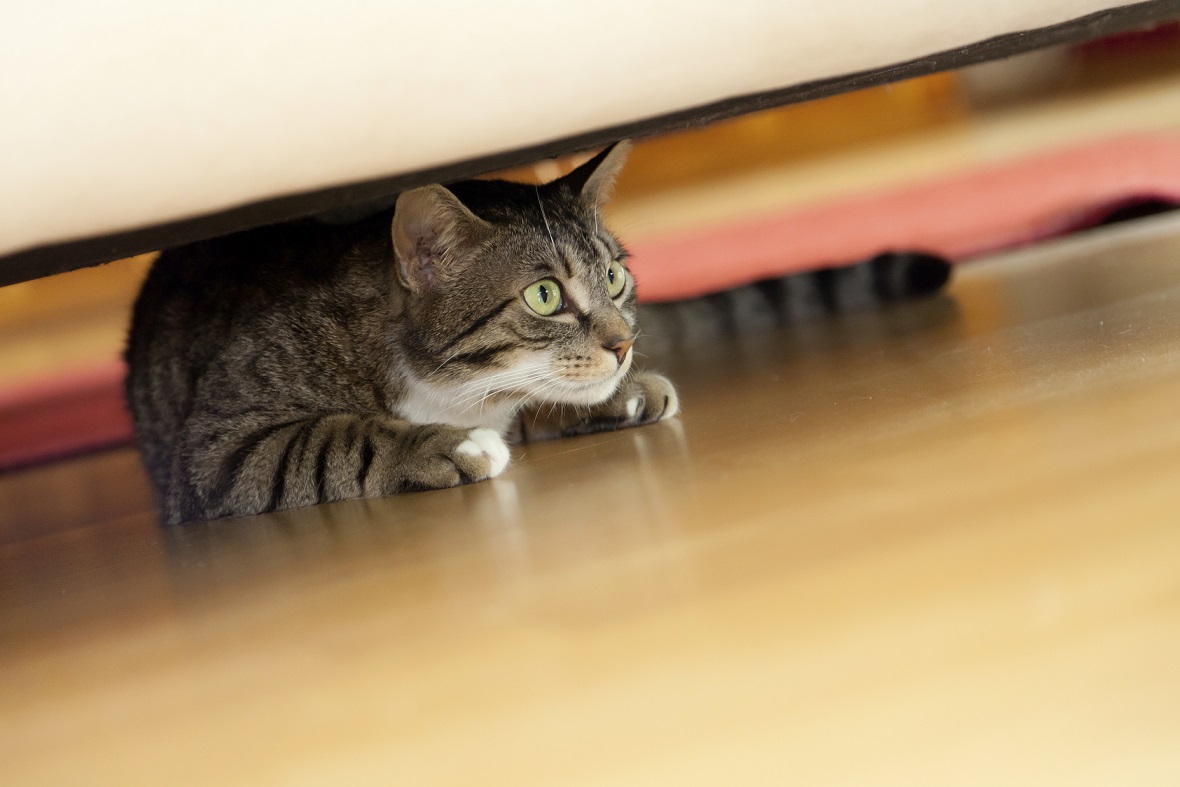My cat is afraid of noise
Cats are often frightened by loud or unusual noises such as thunderstorms, music, work, guests in the house... Their reaction is usually to go and hide to feel safe. Is it possible to get them used to all these noises? How to calm them down?
Why are cats afraid of noise?
Cats are often naturally fearful and can be frightened by all sorts of things. Cats can be stressed by loud and/or unusual noises: music, thunderstorms, objects falling on the floor, vacuum cleaners, etc... This obviously varies from one individual to another, some will be afraid of the slightest noise while other cats will be more serene.
In general, cats run away when they are afraid, they will hide somewhere where they feel safe. Stress can manifest itself in other ways in cats: excessive licking, uncleanliness (the cat relieves itself outside the litter box), aggressiveness, etc.
When cats have exaggerated fear reactions to a noise that is not dangerous to them, it is called a phobia. Some cats are by nature more fearful than others and are more likely to develop phobias. Cats can also have grown up in low noise conditions, with few stimuli, etc.: the slightest noise then becomes a source of stress in adulthood. They can also develop phobias following a traumatic experience (exposure to a high intensity noise without the possibility to escape for example).
What are the solutions to reduce their fear?
In the case of a fear of noise, several solutions are possible to calm cats.
First of all, it is possible to give them an anti-stress food supplement in the form of a cure or in anticipation of a stressful event: invitation of people to the house, work, etc... Anti-stress food supplements generally have no side effects or addiction. It is often possible to give them to animals for a long time. Do not hesitate to talk about it with your veterinarian.
It is also possible to connect a diffuser with soothing properties. Diffusers should be plugged in continuously in the cats' main living area for at least one month. If the diffuser shows a clear improvement, then it is perfectly possible to leave it on for a longer period.
In case of stressful noises for the animal, you can also try to play with it. Playing will divert your cat's attention from the noises. Play is also an excellent anxiolytic.
Ideally, kittens should be accustomed to hearing all kinds of noises from a very young age to prevent them from being a source of stress in adulthood: vacuum cleaner, music, doorbell, etc...
In adulthood, it is possible to accustom cats to noises but you must be careful to proceed gradually. For example, to get your cat used to music, play it at a low volume for a short time (a few seconds). If your cat does not show any signs of stress, we advise you to reward and praise him/her well so that he/she associates this noise with something positive. You can gradually increase the volume of the music and the listening time. Your cat must of course have access to a hiding place at all times so that it can take refuge there if it is afraid. Never force your cat to stay in your arms while listening to the music; it should be able to run away if necessary.
When it is not possible to control the volume, do not hesitate to use videos on the internet to work with your cat and get him used to the noises (thunderstorm for example).
If all these measures are not sufficient, we advise you to consult a veterinarian. He or she will be able to examine your cat and determine if it is a fear or a phobia. Prescription treatments can make a big difference. Your veterinarian will set up behavioral therapy and if necessary medical treatment.

